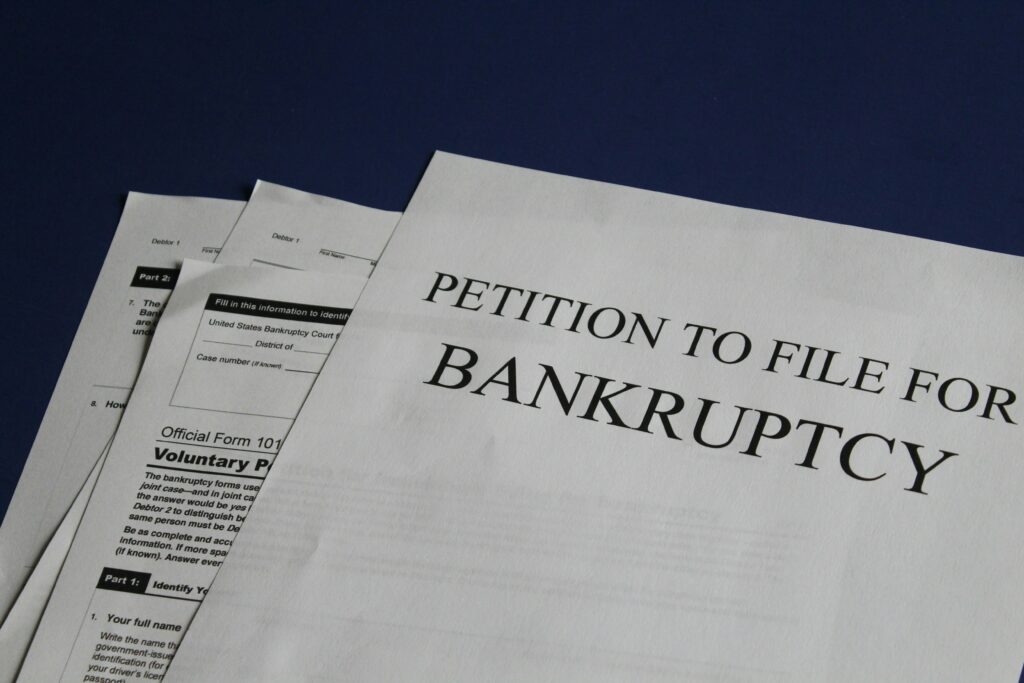If you find yourself facing foreclosure, you may be confused by the term pre-foreclosure. What’s the difference?
Here’s what you need to know.
- What Is Pre-Foreclosure?
- What Is Foreclosure?
- What Are My Pre-Foreclosure Options?
- What's the Difference Between Pre-Foreclosure & Foreclosure?
- Pre-Foreclosure vs Foreclosure: Frequently Asked Questions
What Is Pre-Foreclosure?
Your bank may begin the pre-foreclosure process when you are 90 days behind on your mortgage payments. You still own the property, but unless you work out an agreement with your lender or sell the house before it’s auctioned off, you will lose your home to foreclosure.
The bank will send you a notice of default that says it will pursue legal action if you don’t pay your debt. Your lender will also notify the county recorder’s office or file a lawsuit in court. The bank will give you 90 days to come up with the missing payments and reinstate your loan.
If the debt is not paid within 90 days of the notice of default, a notice of trustee sale will be issued to inform the public that your home will be sold at auction. The bank must run a newspaper ad about the trustee’s sale for three weeks that includes details on the property, as well as the date and time of the sale.
This pre-foreclosure process can last 3-10 months. However, until your home is officially foreclosed, you have options to prevent it.
What Is Foreclosure?
Foreclosure happens when the bank repossesses your property. The lender wants money, not your home, so it will try to sell your property in a public auction. The opening bid is usually based on the loan, liens, taxes, and sale costs associated with the house. In the end, your home will be awarded to the highest bidder (or the buyer most likely to close) who will get immediate possession.
How long you are allowed to stay in the house after the trustee sale is up to the new owner. If you do not comply, the sheriff will be instructed to evict you and your belongings. If your home does not sell during the auction, the lender will likely try to sell it through a broker or other entity. You still have to find another place to live.
The effects of foreclosure go far beyond losing your home. Your credit will be damaged, and it will be some time before you can apply for another mortgage. You may have trouble getting a job in the future, and your mental health may suffer. Your community could also be affected by reduced property values.
What Are My Pre-Foreclosure Options?
There are steps you can take during the pre-foreclosure process to prevent your home from being sold in a trustee sale.
1. Make Up Missed Payments Before Foreclosure
You can get out of default by catching up on your missed payments. You’ll also have to pay late fees and penalties, as well as continue with your regularly scheduled payments.

2. Ask for Loan Modification During Pre-Foreclosure
Your lender may work with you on a loan modification. This may involve shortening your rate, lengthening the term, deferring part of your payment, or making it easier for you to pay in some other way.
3. File for Bankruptcy to Pause the Foreclosure Process
Filing for Chapter 13 or Chapter 7 bankruptcy pauses foreclosure but severely damages your credit. Chapter 13 lets you keep your property through a repayment plan if you have enough income to cover both overdue and current payments. In contrast, Chapter 7 requires a low income, eliminates your debt, and involves a trustee selling your nonexempt property to pay creditors, typically within four to six months. While Chapter 7 can delay a scheduled foreclosure sale by three to four months, lenders can request to lift the stay and proceed with the sale.

4. Obtain a Deed in Lieu of Foreclosure
A deed in lieu of foreclosure would turn over ownership of your home to the lender and absolve you of the debt. This option would prevent your credit score from taking a hit, but you’d still lose your home and have to move out.
5. Sell Your Pre-Foreclosure Home in a Short Sale
A short sale allows you to sell your home for less than what you owe your lender. Most banks will comply with this strategy because of the time and money involved in foreclosure. Your credit will remain intact, but you’re still left without a home.
6. Sell Your Pre-Foreclosure Home Fast for Cash
Selling your pre-foreclosure home fast for cash can be a viable option to avoid foreclosure. By selling to a cash buyer, you can expedite the process, settle your outstanding mortgage debt, and use any leftover profits to find a new home. This strategy allows you to move on without the lengthy delays and uncertainties associated with traditional home sales.
What’s the Difference Between Pre-Foreclosure & Foreclosure?
Now you’re aware of the difference between pre-foreclosure and foreclosure. You also know your options up until your home is foreclosed.
Pre-foreclosure is the time between your notice of default on mortgage payments and the loss of your property to your lender or a buyer. Foreclosure is the end of the road: your home is sold at auction or the bank repossesses it.
If you sell your home during pre-foreclosure, you don’t have to worry about your credit score being affected or securing a future mortgage. With a cash buyer, the process is fast and there’s no financing involved.
Contact New Again Houses® today to speed up the process!
Pre-Foreclosure vs Foreclosure: Frequently Asked Questions
What does NOD mean in foreclosure?
In foreclosure, NOD stands for Notice of Default. It is a formal notice from the lender indicating that you have missed several mortgage payments and are in default, starting the pre-foreclosure process.
How many mortgage payments can you miss before pre-foreclosure?
Typically, you can miss three mortgage payments, or about 90 days, before your lender initiates pre-foreclosure proceedings. At this point, the lender may issue a Notice of Default, signaling the start of the pre-foreclosure process.
How do I know if my house is in pre-foreclosure?
You will know your house is in pre-foreclosure if you receive a Notice of Default from your lender after missing several mortgage payments, usually around 90 days. Additionally, your lender may contact you directly to inform you of the status and discuss potential solutions.
How does pre-foreclosure work?
Pre-foreclosure begins when you miss several mortgage payments, typically around 90 days, prompting the lender to issue a Notice of Default. During this period, you have the opportunity to resolve the default by catching up on payments, negotiating a loan modification, or selling the property to avoid foreclosure. If the default isn't resolved, the lender may proceed with the foreclosure process.
How long does a house stay in pre-foreclosure?
A house typically stays in pre-foreclosure for 3 to 10 months. During this time, you can take steps to prevent foreclosure.
What is a pre-foreclosure sale?
A pre-foreclosure sale is when you sell your home before the lender completes the foreclosure process. This allows you to pay off the mortgage and avoid the negative impact of foreclosure on your credit. It can be an effective way to settle your debt and move on.
Does pre-foreclosure affect your credit score?
Pre-foreclosures have the potential to affect your credit scores, depending on the actions you take to resolve the situation and whether the foreclosure process is completed. Attempting remedies such as loan modifications or selling the property before foreclosure can mitigate the impact on your credit.
Who suffers the most in a foreclosure?
In a foreclosure, homeowners suffer the most, facing the loss of their home and significant damage to their credit. Additionally, foreclosure can have emotional and financial consequences, impacting both families and communities.
Can banks charge foreclosure charges?
Yes, banks can charge foreclosure-related fees, including legal fees, property inspection costs, and other administrative expenses. These charges are typically outlined in the mortgage agreement and can add to the financial burden for homeowners in foreclosure.
Why do banks charge foreclosure charges?
Banks charge foreclosure-related fees to cover the expenses incurred during the foreclosure process, such as legal fees, property inspections, and administrative costs. These charges help offset the financial burden on the bank associated with reclaiming and reselling the property.
What is the simplest solution for foreclosure?
The simplest solution for foreclosure is selling your house fast for cash. This option allows you to settle your mortgage debt, avoid the complexities of foreclosure proceedings, and mitigate the impact on your credit. By selling to a cash buyer, you can expedite the process and move on from the financial burden of foreclosure.

Is Your Home in Pre-Foreclosure? Sell Your House Fast for Cash to New Again Houses
New Again Houses has been in the business of helping local homeowners sell their homes since 2008. Are you ready to sell your house, get a cash offer, and close in a matter of days? Contact us today to get started!
